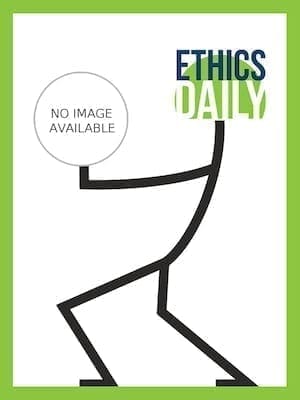For the first time, more than one in every 100 Americans is behind bars, disproportionally affecting people of color and the young and competing for tax dollars with needed government programs like education.
Those are findings of a study on incarceration rates released last week by the Pew Center on the States.
According to the Pew study, the United States incarcerates more people than any country in the world. That includes China, which has a far greater population than the U.S. The percentage of Americans in prison is roughly eight times that of Germany.
Statistics show black and Hispanic men are imprisoned at far higher rates than their white counterparts. One in 106 white men 18 or older is behind bars. That compares to one in 36 for Hispanics and one in 15 for blacks. The rate is even higher for black men ages 20-34, one in nine, and drops to one in 115 for black men 55 or older.
The prison population is growing not because of an increase in crime, the report said, but is driven by policy decisions like popular “three strikes” laws and other measures that put more people behind bars and keep them there longer.
Rising prison costs are breaking state budgets, the study said, but doing little to reduce recidivism. While few doubt the need to lock up dangerous criminals, the study said, policy makers are increasingly looking to alternatives to the high costs of warehousing inmates.
The Pew study said growing prison populations also have indirect costs. People who don’t work or hold low-paying jobs as a result of incarceration, for example, are less likely to do things like pay child support.
“Jesus makes the inexorable connection between poverty and the swelling prison population of his day with his inaugural sermon in Luke 4:18,” said Aidsand Wright-Riggins, executive director and national secretary of National Ministries for American Baptist Churches in the U.S.A. “To bring good news to the poor is linked with dismantling the growing prison industrial complex of first century Roman-occupied Palestine.”
“America needs to wake up and realize that not only does being raised in poverty contribute to the greater likelihood of being involved in crime and violence but that the chances of being prosecuted for non-violent crimes leading to incarceration increases with one’s level of poverty,” he said. “Until we put as much money into education and guaranteeing that workers earn a living wage, the pathway between the playground and prison will continue to be littered with the dashed aspirations and dreams of our nation’s poor and oppressed.”
Alan Bean, an American Baptist minister who heads up a faith-based organization called Friends of Justice, said he would like to see numbers that focus specifically on the incarceration rate of poor black males.
Bean, a white minister credited with bringing international attention to a civil-rights case in a small Louisiana town known worldwide as the Jena 6, describes a “New Jim Crow” that, unlike the old system of segregation, does not affect all African-Americans the same.
The old Jim Crow assumed that all black people were inferior to whites because of the color of their skin. That has been replaced, Bean says, by a “racism based on color blindness and normalcy of whiteness,” in which people of color are accepted as long as they can assimilate to white attitudes and traditions.
The New Jim Crow, Bean said at a small-group session at the recent New Baptist Covenant Celebration in Atlanta, discriminates against low-income people unable to make the jump to today’s high-tech and highly educated society.
To see the New Jim Crow in action, Bean said, “You go down to your local county court house and you see who is on the docket.” The people there, he predicted, are likely to be overwhelmingly people of color, poor and mentally ill.
Bean, who formed Friends of Justice in response to an infamous 1999 drug sting in Tulia, Texas, that targeted black males, said 99 percent of the people who came to Jena last Sept. 20 were African-American, and most appeared to be middle class. Every person he talked to said the same thing: “Well I have this brother, I have this grandchild or I have this niece or nephew who got caught up in the criminal-justice system like these boys in Jena, and I’m here to say I’ve had enough.”
“When I looked at the way white America and black America have responded to Jena, I realized that there is a huge perception gap on issues of race and fairness and the problem in the criminal justice system that we need to start talking about, and we need to start talking about it in the context of faith,” Bean said.
Bob Allen is managing editor of EthicsDaily.com.
Previous articles:
American Baptist Activist Says Jena March Signals New Civil Rights Movement
American Baptist Pastor Brings International Spotlight to Jena 6
Defending the Poor and the Prisoner

